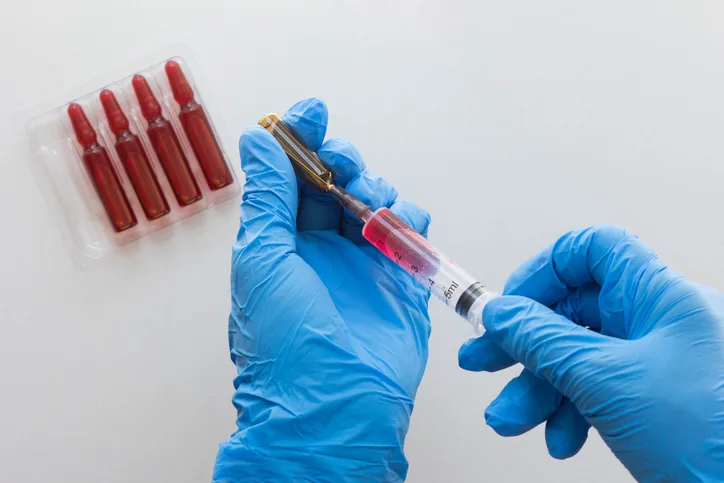
In the Literature
Dor C, Nixon S, Schmitz SS, et al. Efficacy and tolerance of oral versus parenteral cyanocobalamin supplement in hypocobalaminaemic dogs with chronic enteropathy: a controlled randomised open-label trial. J Small Anim Pract. 2024;65(5):317-328. doi:10.1111/jsap.13705
The Research …
Cobalamin (ie, vitamin B12) is an important intracellular cofactor. Hypocobalaminemia can result in cellular cobalamin deficiency that leads to increased methylmalonic acid (MMA) concentrations, is identified in 19% to 38% of dogs with chronic enteropathy (CE), and warrants cobalamin supplementation.1-3 Parenteral administration of cyanocobalamin has been the main method of supplementation; however, recent studies have shown similar efficacy of oral and parenteral supplementation for achieving normal serum cobalamin and/or MMA concentrations.4-6
This prospective studya was designed to evaluate tolerance and efficacy of oral versus parenteral cyanocobalamin supplementation for normalizing serum cobalamin concentrations in client-owned hypocobalaminemic (<250 pg/mL; reference interval, 240-590 pg/mL) dogs with clinical signs of CE, including subgroups of dogs with protein-losing enteropathy, severe CE (based on canine inflammatory bowel disease activity index [CIBDAI] scores >9), or moderate to severe hypocobalaminemia (<200 pg/mL). Dogs (n = 37) at 3 referral centers were randomly assigned to receive oral (capsules every 24 hours for 12 weeks) or parenteral (SC injections weekly for 6 weeks with 1 additional injection 4 weeks later) cobalamin. Serum cobalamin and CIBDAI scores were assessed at inclusion, week 7, and week 13. Serum MMA concentration was measured at inclusion and week 13. Owners completed a questionnaire on treatment adherence, palatability (oral supplementation group only), tolerance, and satisfaction at week 13.
Nineteen dogs (11/18 in the oral treatment group and 8/19 in the parenteral treatment group) completed the study. All dogs in the oral treatment group and 7 dogs in the parenteral treatment group had normalized or increased serum cobalamin concentrations at weeks 7 and 13. No significant difference in serum cobalamin concentration between treatment groups was identified at week 13, regardless of presence of protein-losing enteropathy, severity of hypocobalaminemia, and CIBDAI score at inclusion. In addition, no significant differences in serum MMA concentrations, treatment adherence, satisfaction, or tolerance scores were identified between treatment groups at week 13.
… The Takeaways
Key pearls to put into practice:
Hypocobalaminemia is often identified in dogs with CE. Measuring serum cobalamin concentration is an important diagnostic step in dogs with chronic clinical signs of GI disease.
Oral cyanocobalamin supplementation is well tolerated and effective for normalizing serum cobalamin concentrations in most dogs with hypocobalaminemia secondary to CE—regardless of clinical disease status or severity of hypocobalaminemia (including serum cobalamin concentrations below the lower limit of the reference interval)—and can be considered as a treatment option.
Re-evaluation of serum cobalamin concentration is recommended 4 weeks after supplementation is completed because some dogs may not respond to oral or parenteral cobalamin.
a This study was partially funded by ADM Protexin.
You are reading 2-Minute Takeaways, a research summary resource presented by Clinician’s Brief. Clinician’s Brief does not conduct primary research.